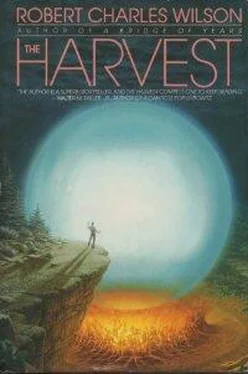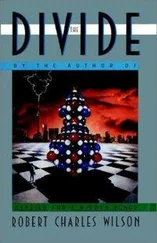Tyler had given a great deal of thought to the crisis facing the country, and he rehearsed his logic as he drove. The problem, he thought once again, was that all the armies had gone home, and how do you engage an enemy without an army?
Guerrilla warfare was the obvious response to an occupying power of superior strength… but you still needed an infantry, a militia, a power base. “The revolutionary moves among the people like a fish in the sea.” Mao Tse-tung. But “the people” had been coopted. The fish was beached. Tyler had seen videotape of African armies, Central American armies, Asian and European and even Israeli and American armies, rabble and trained troops alike, laying down their arms, bailing out of tanks, abandoning trenches and revetments like something from a hippie pipe dream of the sixties. It had happened from Ethiopia to Lebanon, from Turkestan to Latin America, and it had happened without exception.
But it seemed to Tyler that even this defeat could be used to his advantage. Weapons that were rusting in the field couldn’t be turned on an insurgency. He could move among this pacified population, not like a fish in the sea, more like-—say—a shark among the minnows or a whale among the kill.
But not by himself. One could be outnumbered. One ought not to be alone.
One in ten thousand, the President had told him.
Tyler didn’t know if that was a reliable statistic. It surely wasn’t an encouraging one. But the military had been a major employer prior to Contact, and even if the situation was as bleak as it seemed, he should be able to find one or two good men.
Maybe he’d waited too long. Maybe the plan he had devised wouldn’t work… but that remained to be seen.
* * *
Quantico was a disappointment.
Last month, the Marine Reservation had been a hive of activity. Local newscasts had shown an apparently endless relay of Hercules transport aircraft buzzing in and out, part of the post-Contact grain airlift to the famine zones of the world.
But that airlift was over now, and the huge USMC complex at Quantico appeared to be deserted. He drove among these brick buildings and overgrown parade fields honking his horn until he grew weary of the echoes rolling back.
He drove to the main gate, stopped his car, and opened the trunk. Sunlight warmed the skin of his neck and dappled the huge statue of the Iwo Jima flagraising. From the trunk, he unwound ten yards of bright orange rip-stop nylon on which he had painted, painstakingly, in letters of waterproof black acrylic, the words:
Any Member of the Aimed Forces Remaining on Duty
Call Colonel John Tyler (202)212-5555
or Report to 731 Portage Street Arlington ASAP
God Bless the USA
He had sewn nylon cords into the fabric at several points, and he attached these to the fenceposts so that the banner hung suspended across the road.
The nylon drooped in the still air, but the message was easy to read.
* * *
Over the course of a week and a half Tyler constructed similar banners and left them at smaller military installations from Baltimore down to Richmond. Every evening, he checked his answering machine for messages. To date: None.
On his trips, Tyler was able to monitor the evolution of the new world. Superficially, not much had changed. Traffic was substantially lighter, especially on the interstates. Tyler saw more people out walking than there used to be, and fewer at work. A lot of small businesses (muffler shops, hairstylists, bookstores) were closed or unattended. People were still running the food stores and shopping at the malls, but he wondered how much longer that would last. Come to that, he wondered how several hundred thousand military and government employees were surviving without paychecks.
The thought was intriguing enough that Tyler tried an experiment. He went into a suburban Arlington grocery store—not in his neighborhood—and filled a cart with canned goods and bottled water. When he came to the checkout he told the clerk, “I don’t have any money. I used to work for HUD.”
He expected security guards. Instead, the clerk—a chubby young redhead wearing a nametag that said “Sally”—smiled and waved him through.
So why was anybody paying? Tyler lingered by the door and took an eyeball survey of the tills. According to his count, it was roughly half and half—half paid, half didn’t. Those who did seemed to be operating mainly by force of habit. Tyler guessed that paying for what you take was a reflex deeply entrenched in the American psyche—not an easy habit to break. It continued regardless, like the Major League playoffs. But he guessed the country was already well on the way to a moneyless economy.
Perfect communism, he thought, as practiced by perfect robots.
Tyler heard a voice inside him say, You’re surrounded by monsters.
It was Sissy’s voice. Sissy was an old, sad ghost. Tyler squared his shoulders and paid no attention. Sissy had been telling him he was surrounded by monsters since the day he was born.
* * *
Over the years, all his memories of Sissy had condensed into a single image. Here was Sissy as she appeared in his dreams: A middle-aged woman in a swaddling of canvas and polyester skirts, two sweaters buttoned over her pillowing breasts, gypsy-bright and red-faced, pushing a wire buggy full of old newspapers on a too-bright city sidewalk.
A bag lady, as they would say nowadays. She was his mother.
His father had been a salesman for a company that sold plastic novelty cups on which the name of a business could be printed in gold flash. The cup Tyler drank from for the first seven years of his life was inscribed with the legend Fletcher’s taxidermy, 33 east fith st, Cincinnati. When Tyler learned to read—he taught himself to read at the age of four years—he discovered the word FIFTH had been misspelled. Which made him cry, for no good reason he could think of. By then, his father was long gone.
His mother (she demanded he call her Sissy) lived in an ancient three-story row house on a hilly street in an urban neighborhood declining toward slum status. She owned the house. Sometime in her younger days, Sissy had inherited money from an aunt in Pittsburgh. Sissy had been young and childless and perhaps, Tyler thought, aware of her own impending dementia. She had bought the row house outright and put the remainder of the money in a trust, which issued her a monthly check.
Tyler’s father had come and gone without gaining access to any of this money. Sissy, a cautious woman by nature, had remained tightfisted even as the world began to slip past comprehension.
Tyler wasn’t sure when he figured out that Sissy was crazy. Probably some other child had been kind enough to let him know. Hey, Tyler, your mothers dressed like Freddy the Freeloader! Hey, Tyler, your house smells like shit!
He learned early on that the best response was a firm and uncompromising Fuck you. It got him beat up a lot. But in the long run, it also got him left alone. And it taught him a valuable lesson about people. You could be afraid of them or you could hate them; those were your choices. Anything else was a trap… a temptation to punishment.
He hated and feared Sissy, but she was also the exception to the rule. Although she was insane, Sissy was still his mother. She fed him, sporadically; she clothed him, eccentrically. She was supposed to care about him, and she was capable of hurting him with her indifference.
He could tolerate the indifference of anyone but Sissy.
That was why, when he went to school for the first time in his life—five days late and in the company of a truant officer—he was driven to tears when everyone laughed at his torn pants, his food-stained shirt.
Читать дальше












